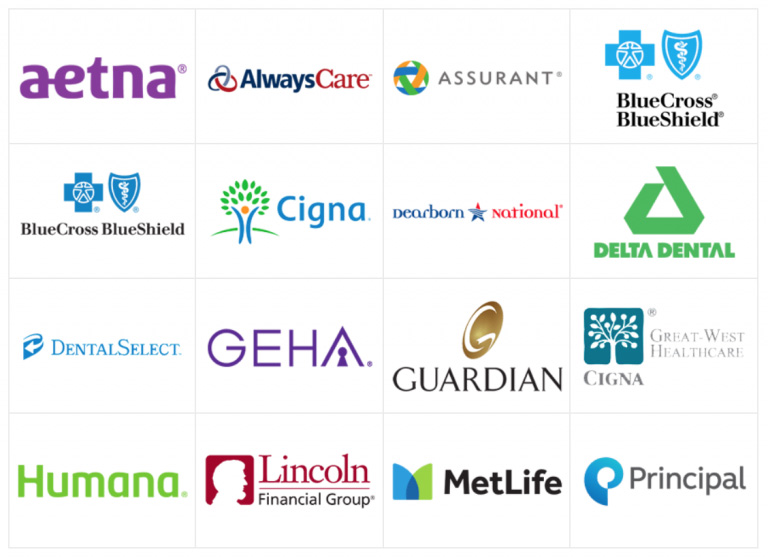Periodontics
Periodontics in Bradenton, FL
Periodontics is a specialty in dentistry that focuses primarily on periodontal (gum) disease. Periodontal disease can lead to more than just an unsightly smile—it can cause loss of teeth & eventually, if left untreated, other more serious health problems.
General dentists are trained to detect periodontal disease & treat it in early stages. However, they often refer complicated or later-stage cases to a specialist. Periodontists undergo an additional three years of training in periodontics, specializing in gum disease, oral inflammation & dental implants. Because of their expertise in the soft tissues of the mouth, they are also often experts in soft-tissue cosmetic procedures, such as crown lengthening or gum lifts.
Gum Disease
Called gingivitis in its early stages, periodontal disease is caused by excessive toxic bacteria (found in plaque) that attack your mouth’s soft tissues. Early warning signs of this disease include red, swollen or bleeding gums. If caught early, we can help you reverse the damage. If detected late, we can use one of the many effective restorative dentistry procedures to restore your mouth to its healthy & beautiful state.
Patients often don’t experience pain with gum disease, but they might notice bad breath, a change in how their teeth fit together when they bite or bleeding while brushing or flossing. However, those symptoms can be easy to miss or dismiss, so it’s important to keep your regular dental appointments. General dentists look for warning signs of periodontal disease when they perform regular hygiene exams, but it can be beneficial to have a periodontist take a look as well.
During an exam, periodontists check the color of your gums, whether they are receding from your teeth, if there are gaps between them & your teeth & how easily they bleed. But they also look at your bite (or how your top & bottom teeth line up when you close them) & whether any of your teeth feel loose. Additionally, periodontists are well-trained in identifying whether a patient is at higher risk of developing gum disease.
Gum disease has been shown to have a relationship with other medical conditions, so a patient’s risk isn’t confined to their dental situation. Those with heart disease, diabetes & pregnancy are at higher risk for developing periodontal disease. Patients being treated for any of those conditions should inform their dentist or periodontist. Additionally, age, diet, genetics, medications, stress, grinding & smoking habits affect your risk.
The good news is that if you are at higher risk for periodontal disease, you can take measures to prevent it. Keeping up with regular at-home hygiene, making sure to floss at least once every day, is the best thing you can do for prevention. Also, don’t miss your six-month cleaning visits. If your dentist or periodontist believes you are still at higher risk, they might recommend more frequent cleanings or regular deep cleanings.
Deep cleanings, also known as scaling & root planing, are the gold standard of periodontal care. Scaling is the process of cleaning tartar & plaque from teeth under the gums & root planing describes smoothing those same surfaces so bacteria doesn’t as easily stick to them.
Let us help you keep your teeth & gums strong & disease-free with regular examinations & cleanings.
Periodontic Services & Treatments:
Periodontal disease, commonly called gum disease, can lead to more than just an unsightly smile—it can cause loss of teeth & eventually, if left untreated, other more serious health problems.
If you have been diagnosed with periodontal disease, we will recommend that you come in for a deep cleaning. While it may sound like just a more intense teeth cleaning, deep cleanings are actually the gold standard of treatment for patients diagnosed with gum disease. This procedure is also sometimes referred to as “scaling & root planing” or “periodontal therapy”.
In periodontal disease, swollen unhealthy gums start to pull away from the teeth because of pockets where infection-causing plaque & tartar accumulate. During a deep cleaning, the dentist or hygienist removes plaque, tartar & bacteria from the surfaces of your teeth & tooth roots. The dentist or hygienist then smoothes the surface of the tooth root to make it harder for bacteria to stick in the future & easier for the gums to re-attach.
What Is Gum Disease?
Called gingivitis in its early stages, periodontal disease is caused by excessive toxic bacteria (found in plaque) that attack your mouth’s soft tissues. Early warning signs of this disease include red, swollen or bleeding gums. If caught early, we can help you reverse the damage. If detected late, we can use one of the many effective restorative dentistry procedures to restore your mouth to its healthy & beautiful state. We can help you keep your teeth & gums strong & disease-free with regular examinations & cleanings plus specialized interventions to treat periodontal disease if needed.
Benefits of Deep Cleanings
While deep cleanings cannot cure periodontal disease, it can slow or stop its progression. Deep cleanings can reduce the need for surgical intervention in the future & often helps swollen bleeding gums become healthy & pink again.
If you have gum disease, we may recommend that deep cleanings, along with periodontal maintenance checkups, become part of your routine dental visits.
Overview of Periodontal Treatments
Management of periodontal disease also involves a variety of other treatments in addition to deep cleanings. Periodontal therapy involves the enhancement of the gum tissue that holds your teeth in place. Diseased tissue must be replaced with healthy tissue whenever possible. If gum disease has caused severe gum recession, gum grafting may be necessary to move gum tissue back into place so that tooth roots are no longer exposed. We will also tackle the bacterial infection in your tissues directly by applying topical antibacterial or antibiotic solutions, either on their own or in conjunction with the treatment already mentioned.
Patients with very advanced or complicated periodontal disease may need to see a specialist. A periodontist is a dentist who works almost exclusively in the treatment of gingivitis, periodontal disease, & other afflictions of the mouth’s soft tissues. A periodontist is a fully trained dentist who completes additional specialized training in the field of periodontics after completing a general dental degree. While all dentists are trained to treat periodontal disease, this additional training makes a periodontist an expert in gum disease, its risk factors, & the symptoms & conditions that come with this dental disease. If you have been diagnosed with advanced gum disease, a periodontist may become a central part of your routine dental care & will work with us to create a treatment plan to keep your condition from getting worse.
In periodontal disease, swollen unhealthy gums start to pull away from the teeth because of pockets where infection-causing plaque & tartar accumulate. During a scaling part of the treatment, the dentist or hygienist removes plaque, tartar & bacteria from the surfaces of your teeth & tooth roots. This is done with either hand tools or electronic instruments, or a combination of both.
If you have gum disease, your dentist may recommend that scaling & root planing, along with periodontal maintenance checkups, become part of your routine dental visits, just like your cleanings & exams.
While scaling & root planing cannot cure periodontal disease, it can slow or stop its progression. The point of this procedure is to remove the bacteria-filled plaque & tartar that inflame your gums & the surrounding bone. Scaling & root planing can reduce the need for surgical intervention in the future & often helps swollen bleeding gums become healthy & pink again.
What Is Scaling & Root Planing?
Scaling & root planing is the gold standard of treatment for patients diagnosed with gum disease (i.e. periodontitis). This procedure is sometimes referred to as “deep cleaning” or simply “periodontal therapy”. If you have periodontitis that is at risk of getting worse, the dentist may recommend scaling & root planing to keep your gum disease from advancing. However, you should know that this is not a procedure that you can just undergo once then forget about it. We may recommend that you continue to come in for scaling & root planing as necessary to keep your mouth as healthy as possible despite your condition.
Procedure Overview
- The handheld instruments used are a scaler & a curette. Both of these tools look a little like a metal chopstick with a sharp, curved tip. You’ve seen them before if you’ve had a regular dental cleaning. By gently scraping the tool along your tooth below the gum line, the dentist can find areas of tartar & plaque buildup.
- Electronic scalers use ultrasonic vibration to remove plaque & tartar. The vibrating metal tip of the tool can chip away tartar & an accompanying water spray washes away the debris as it’s removed. This water spray also keeps the tip of the tool nice & cool.
- In the root planing part of the treatment, the dentist or hygienist smoothes the surface of the tooth root to make it harder for bacteria to stick in the future & easier for the gums to re-attach. This is done with the same tools mentioned above but with a focus on making rough spots smooth again. Once the root planing is finished, the dentist may apply a disinfectant or antibiotics to further discourage the return of bacteria.
- If you’ve ever been poked in the gums by accident, you know how sensitive they can be, especially if they’re already swollen from periodontitis. Before starting the scaling & root planing treatment we will numb your gums so that you won’t have any pain or discomfort while we’re working. Typically, only one or two quadrants of a patient’s mouth are treated at a time. That way we only need to numb one side of the mouth, so you’ll still be able to eat & drink fairly normally following your appointment as the anesthesia starts to fade.
Meet Your Award Winning Dentist

John Plumley, DMD

Natalie Platt , DMD




The Proof is in Our Patients

MOST INSURANCES WELCOME AND MAXIMIZED!
Contact us and schedule your visit today.
Most Insurances Welcomed and Maximized
Once you are enrolled, it’s easy to use your dental insurance. Simply choose a dentist & make an appointment! At South Bradenton Dental Care & Your Weekend Dentists®, we accept all major insurance provider plans, so you don’t have to worry about whether your insurance works here: It works great!

| Monday | 7:00 AM – 7:00 PM |
| Tuesday | 7:00 AM – 7:00 PM |
| Wednesday | 7:00 AM – 7:00 PM |
| Thursday | 7:00 AM – 7:00 PM |
| Friday | 7:00 AM – 12:00 PM |
| Saturday | 8:00 AM – 2:00 PM |
| Sunday | 8:00 AM – 2:00 PM |
